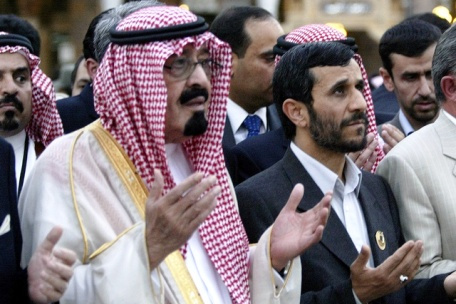Flexibility Futile vis-à-vis Saudi Arabia

On October 30, Qatar News Agency quoted the oil-rich sheikhdom Qatar’s PM Sheikh Hamad bin Jassim Al-Thani’s call for Iran and Saudi Arabia to resolve their disputes through direct talks. Remarks which on the face indicate good-will, but also signify the ambitions of Qatar –the wealthiest nation of the world with its particular geopolitical concerns and vulnerabilities- to join the Middle East’s senior club through mediation between regional powers. But should our view be as rosy as Mr. Al-Thani’s about the improvement of ties between Tehran and Riyadh?
How can a likely mediation be successful? One should first ask if there are any grounds for negotiation and a possible reconciliation between Iran and Saudi Arabia. With conflicting regional interests and approaches of the two countries and their critical relations, there seems to be no opportunity for rapprochement, and Qatar’s mediation would simply fall flat. In the meantime, although Qatar tends to defuse the tensions between two important actors in the Persian Gulf region, it would not benefit from intimate relations between Tehran and Riyadh. Iran and Saudi Arabia becoming friendlier will downgrade Qatar’s regional role. Thus, lukewarm relations between the key Middle East contenders will be the optimum level of relations for Doha.
So far, there has been no sign of inclination on either side, especially Saudi Arabia, to sit at the table and resolve the disputes. Iran and Saudi Arabia are experiencing the height of tension in bilateral ties in a decade, sharpened after the US invasion of Iraq. While Iran supports the new Iraqi government, dominated by the Shiite majority, Riyadh has not suppressed its hatred towards Maliki’s government and the whole new political system in Iraq. The conflict of interests over Iraq will most likely be sustained in the coming years. The second areas of conflict between Iran and Saudi Arabia are Lebanon and Palestine. While Tehran supports the resistance groups, Riyadh prefers a moderate approach. Iran’s regional policies are considered as intervention into Arab World affairs, strongly rejected by the Saudis.
Following the Arab Spring and the popular movements in Arab countries, the conflict of interests became sharper than ever, as they are highlighted in Bahrain and Syria. The mutual detestation between Tehran and Riyadh is not merely caused by the notorious alleged assassination plot claimed by the US. Saudi Arabia’s aggressive behavior stems from the feeling that its regional security interests are at stake. Contrary to a traditionally conservative approach, calibrated to sustain the status quo, Riyadh is now following an aggressive regional policy. The Saudis think that most of the security threats are posed by Iran’s approach; hence their efforts to undermine and contain Iran’s regional clout.
Apart from this, Riyadh wants to prove itself as the key actor in US plans to counter-balance Iran’s regional influence. The Saudis try to function as the nexus of all regional coalitions against Iran. Embarking on reconciliation with Tehran would fall at odds with this larger approach, as the recent remarks of the Saudi Crown Prince Emir Naïf-- who rejected any reconciliation with Iran over the alleged assassination plot to murder the Saudi Ambassador to Washington-- prove.
The Saudis are also facing a legitimacy crisis in the region and among the Muslim masses due to their counter-revolutionary approach. Riyadh now hosts Zine El Abidine bin Ali, the escaped Tunisian dictator, it supported Mubarak until the last moment in Egypt, has backed the Bahraini government against protesters and medically treated Ali Abdullah Saleh, the Yemeni tyrant, and his government. Such unflattering moves had recently distressed the Saudis with a likely anti-regime move by Hajj pilgrims, particularly Iranian nationals, who have a history of bloody clashes with Saudi security forces from 1987 and whose interaction with other pilgrims can bear serious consequences.
Iran’s adoption of a tentative approach vis-à-vis Saudi Arabia to curb the tensions sounds logical at the moment, but the realities should not be ignored: there is no favorable ground for reconciliation between the two countries. Excessive flexibility by Iran for negotiations would not bring any benefits, as the Saudis won’t change their aggressive approach. As long as the present status quo rules the Middle East, tensions won’t subside.

